Russia aims to reverse march of history with Ukraine invasion
The invasion of Ukraine is a critical moment for Western liberal democracies.
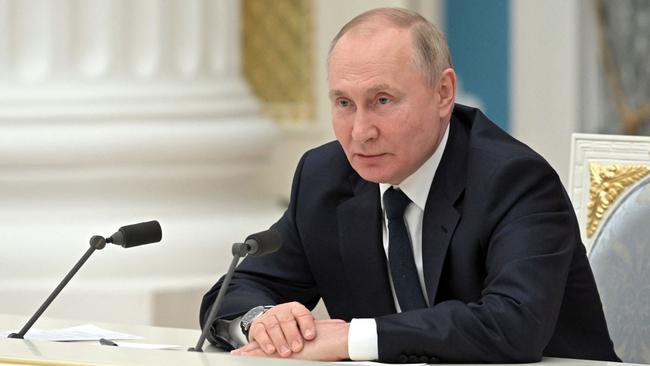
It is a premeditated, long-sought war by Putin. It reveals the brazen empowerment and calculating ruthlessness of the authoritarian states. It is a challenge to the US, Europe and the so-called international order. The immediate stake is the fate of Ukraine, but the consequences will run far – this is the decisive event for US leadership and President Joe Biden and for NATO allies to lead effective punishment short of a military response.
Weakness before Putin will only encourage military adventurism elsewhere. Putin’s language echoes the dictators of the 1930s – lies about Ukrainian provocation and fabrications about genocide, the pretence to protect the innocent, sinister claims the aim is the “demilitarisation and denazification” of Ukraine, demands that Ukrainian forces lay down their arms and a chilling threat to the outside world – that “anyone who tries to interfere with us” must know the consequences will be “as you have never experienced”.
Putin’s purpose is to reverse the march of history since the end of the Cold War. His blood and soil vision seeks to restore Russian grandeur, territory and influence. He repudiates the legitimacy of Ukraine as a nation-state – a reversion to law of the jungle tactics. Putin’s move mocks the ideals and power of the liberal democracies. He surely calculates they cannot damage him and that the West is sliding into a trajectory of internal division and weakness.
There is no moral confusion about this conflict. As Biden said: “Russia alone is responsible for the death and destruction this attack will bring.” Yet what will be the consequences? Has Putin blundered in a fatal overreach? Or will Putin’s aggression further expose the American trauma? How effectively will Ukraine fight? Will Biden be enhanced or diminished at home? Given Donald Trump’s fabrication that this event is Biden’s fault, how will this play into US politics?
It is just three weeks since Putin and China’s Xi Jinping met and concluded a strategic compact. While Ukraine was not mentioned (suggesting differences on this question), China backed Putin’s core stance that NATO must not be expanded while Russia backed China’s opposition to America’s influence in the Indo-Pacific. Their agreed statement attacked Scott Morrison’s prized initiative – the Australia-UK-US nuclear-powered submarine deal.
Putin and Xi are coming together, driven by growing and common strategic interests. This is a danger for the world and for Western democracies. Beijing is equivocal about Putin’s invasion but it has made excuses for his actions. The question is: what has China to gain from this war? How far will it back Putin? There is no evidence to suggest China will run a simultaneous invasion of Taiwan as speculated. But Morrison criticised China on Friday for easing trade restrictions on Russia, saying Beijing was offering Putin a life raft. This was a deliberate move by Morrison to call out China, put Beijing under pressure and use the Ukraine crisis to throw a spotlight onto China’s complicity.
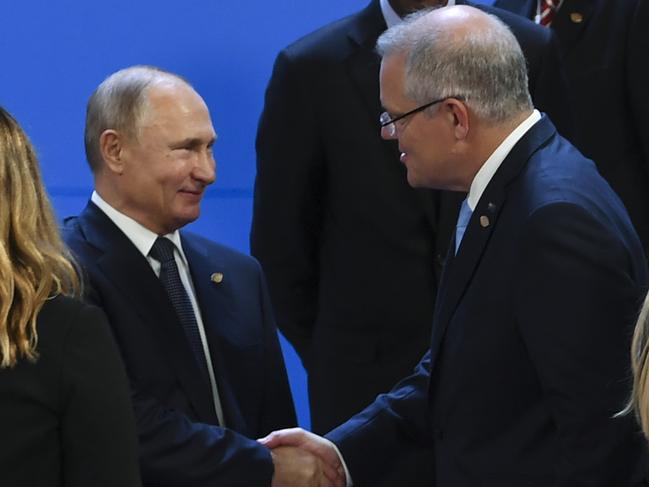
Morrison was right when he said it was important to “separate” these issues, Ukraine and Taiwan. The last thing Australia needs now are sirens from irresponsible politicians claiming that Taiwan is a target next week or month.
This is, however, a critical moment for the power, convictions and unity of Western liberal democracies. It may prove to be a turning point – either the trajectory of democratic decline will be reinforced or Putin’s aggression and his smashing of global norms will provoke a new resolve within the West. If the West cannot devise an effective punishment of Putin, short of direct troop engagement, what hope it can manage China’s growing assertion?
“We are now living in a world where authoritarian autocracies are seeking to have their way,” Morrison said. The US under Biden now confronts an unprecedented task – America must meet the challenge on two fronts, Russia in Europe and China in Asia. Despite this war, Biden still knows China is the central, more formidable rival.
This is vital for Australia. We are part of this unfolding story. Morrison has internationalised China’s economic coercion of Australia and has been influential in shifting international opinion about China; witness the evolution of the Quadrilateral Security Dialogue (the US, Japan, India and Australia) and the AUKUS agreement. Morrison’s operating (but never articulated) rule about China was: they will push as far as the world lets them. And now Putin is doing exactly that.
Putin’s war guarantees that foreign policy and national security will be elevated during our national election campaign. The public will expect to hear from Morrison – not as a shrill campaigner denouncing Labor but as a Prime Minister outlining his evolving response. ALP leader Anthony Albanese will need to step up. The Opposition Leader will be called upon to say far more about his world view; how he sees the US alliance, China, the submarine agreement, the Quad, the defence budget, the risks to national security and how Labor will approach these challenges. Labor has endorsed all Morrison’s main security initiatives, but it is fatuous for anybody to pretend it does not have different appreciations and instincts from Morrison. We need to be told.
Every principle and power reality that Morrison has brought to bear in Australia’s pushback against China over three years is relevant in the Ukraine crisis. Putin’s actions confirm Morrison’s grim conclusions over his time as Prime Minister that the world is being transformed into a more dangerous entity. He called Putin’s invasion “brutal” and “unprovoked”. Australia would function “in lock-step” with the US and the international community in imposing sanctions.
Asked why he wanted a tough stand on Ukraine, Morrison said: “This is about the sovereignty of countries. We’ve got a large country in Russia which is bullying and threatening its neighbours and telling them the decisions that they have to make. And this is not how the world should work.”
This is the same argument, virtually line by line, that Morrison has been making about Australia and China. “We’re in a very different world to the one we were in a decade ago,” he told the ABC. “The world is starting to separate between those sort of authoritarian autocratic regimes who want to go and do whatever they want, wherever they want, and Western liberal democracies and others who want to support the rule of law.
“Those who favour a world order that favours freedom need to stand up for it, as we do.”
Morrison’s message: like-minded countries must band together, find strength in numbers, recognise the reality of a world where intimidation and violence are on display. There is a tight nexus between the authoritarian nature of the regimes in Beijing and Moscow and the authoritarian foreign policies they run. These elements are self-reinforcing. Putin and Xi are driven by an epic sense of their civilisational inheritance; Xi is atoning for China’s long age of humiliation while Putin is saturated in nostalgia for the old Soviet empire. Fierce nationalism and totalitarian propaganda are their methods of control.
The nakedness of Putin’s justification for aggression has done the entire world a service – there is no mistaking the fantastic historical delusions that propel him: “Modern-day Ukraine was in full and in whole created by Russia, Bolshevik, communist Russia to be precise.” According to Putin, it ceases to have a legitimate reason for its existence.
Putin’s invasion of Ukraine is not new. Suggestions to this effect are wrong. His invasion began in 2014 with incursions in the east and seizing territory. The invasion he launched at that time has already claimed 14,000 lives. In recent days Biden has done two things in response to Putin. Along with Western allies he has launched a series of sanctions. The US brands them “massive” and “unprecedented”. They aim to isolate Russia from the global financial system, target wealthy individuals, cut off half of Russia’s hi-tech imports, atrophy its industrial base, and in co-operation with Germany the provision of Russian gas via Nord Stream 2 will not proceed.
Yet Putin has spent years buttressing his country to mitigate the harm. The sanctions will fail unless over time they impose a price on Putin that influences his behaviour. The aim must be to break Russia in an economic sense. The West, the US and Europe must be ready to impose sanctions that also hurt themselves and, on this point, the fear is their response might be inadequate. If the television footage captures scenes of bloodshed and human slaughter from Russia’s invasion then Biden and his NATO allies will face a broadbased backlash from the right and left. The risk for Biden, after the Afghanistan fiasco, is that he becomes a discredited and disrespected president, merely deepening the American domestic trauma.
But Biden made another announcement. Having promised that the US had “no intention” of fighting Russia, he said: “We want to send an unmistakeable message, though, that the United States, together with our allies, will defend every inch of NATO territory and abide by the commitments we made to NATO.”
Those NATO countries include the Baltic States – Estonia, Latvia and Lithuania. Biden has authorised additional US forces and equipment to these countries. In short, if Putin crosses the NATO line it means war with the US under Biden’s pledge and the NATO treaty.
But this still leaves Putin plenty of scope for his military options. He will have the discretion to strike Ukraine when and how he wants and launch a campaign to destabilise its government.
If Putin’s military aggression succeeds and the retaliatory actions and sanctions against him offer only limited punishment then the global order becomes more dangerous – economic coercion, major power intimidation and military adventurism will intensify.
This is not the world most Australians expected over the past generation. It is a reversion to a depth of nation-state rivalry that will demand even greater Australia policy, budget and political changes. With the May election looming the focus on national security, against an ongoing military conflict in Ukraine, will assist Morrison’s re-election prospects.
Beware, however, comparison with 2001 when the 9/11 attack on the US transformed the election atmospherics and decisively assisted John Howard’s third election victory. The differences are sharp. In 2001 the US was attacked, not Ukraine. Australia was involved – at the strategic, military and emotional level. The impact on this country was profound. Howard pledged to stand with America. The ANZUS Treaty was invoked for the first time. Howard called 9/11 an assault “on the way of life that we hold dear in common”. This led to Australian military action – immediately in Afghanistan and later in Iraq. It triggered a transformation in US global strategy and the most significant deepening of the US alliance since 1951.
Have no doubt, Putin’s war is an opportunity but a test for Morrison – a test for him as a Prime Minister, not a campaigner. The best political strategy for Morrison is to eliminate any cheap politics, just manage the crisis as it demands, forget any effort to manipulate it into an attack on Labor. Morrison needs to be responsible, strong and measured – that might actually make some people rethink.
To this stage the world does not know Putin’s exact goal or military gameplan. He wants to destabilise and establish dominance over Ukraine. Will this extend into Eastern Europe as part of his dream of reviving the Soviet Empire? That would constitute a major and fatal escalation. This penetrates to a deeper question: has Putin made an intelligent though ruthless calculation or is this the disastrous blunder of an ageing leader, deluded by his dictatorial power and likely to do untold harm to his country?


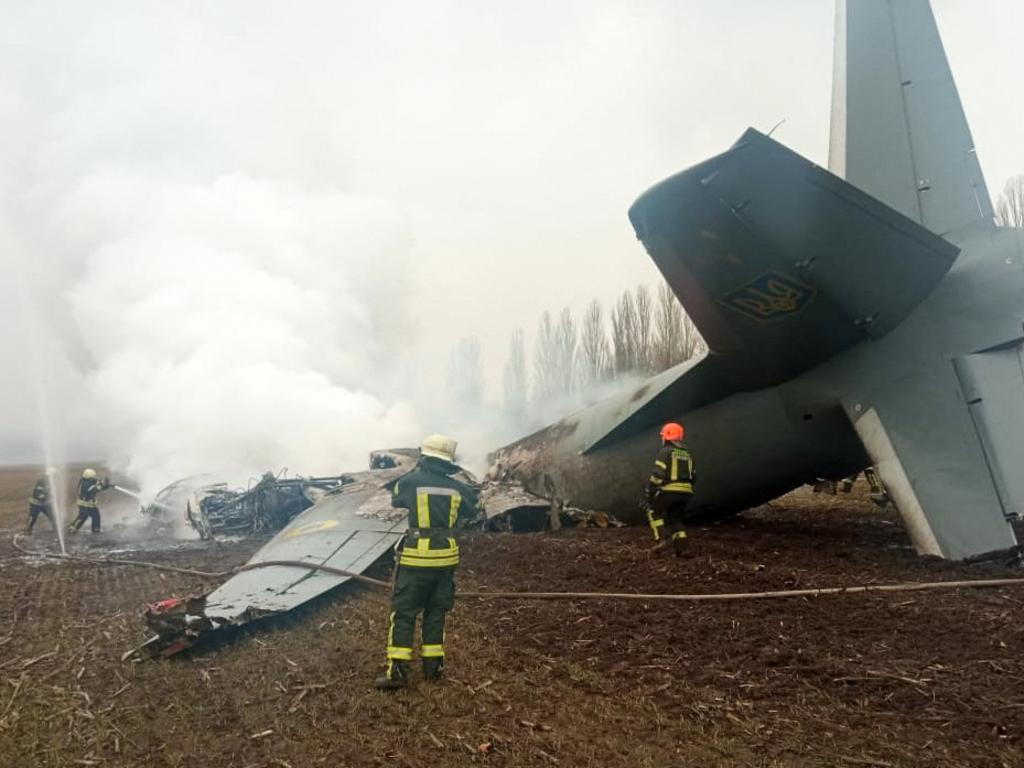
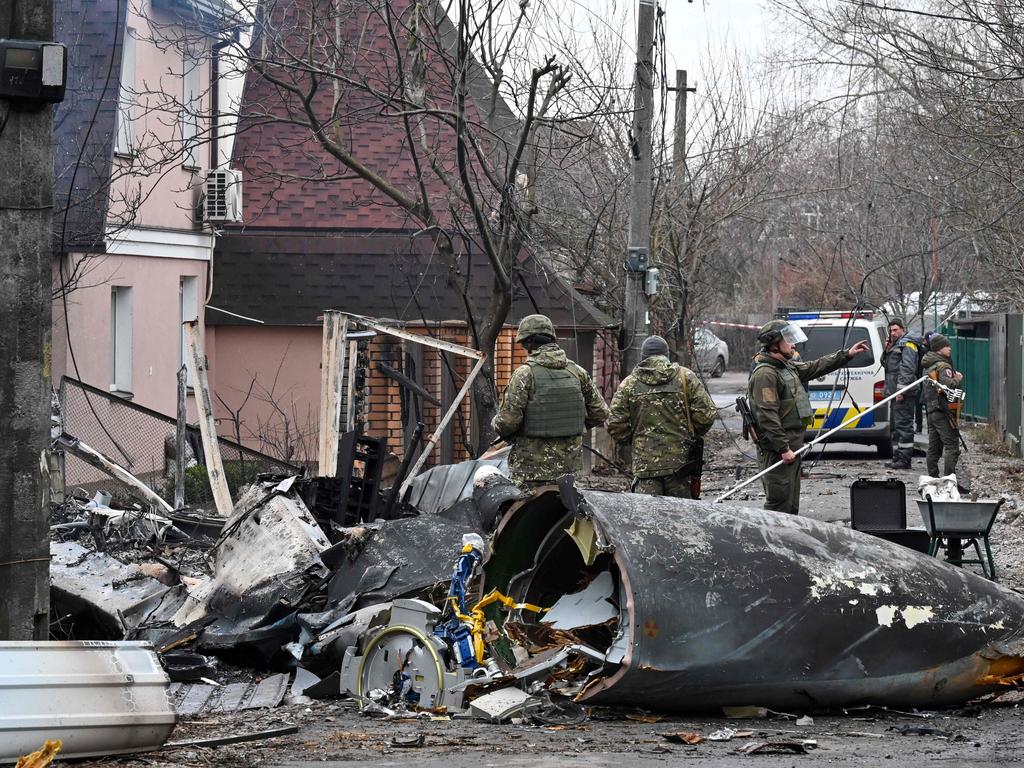
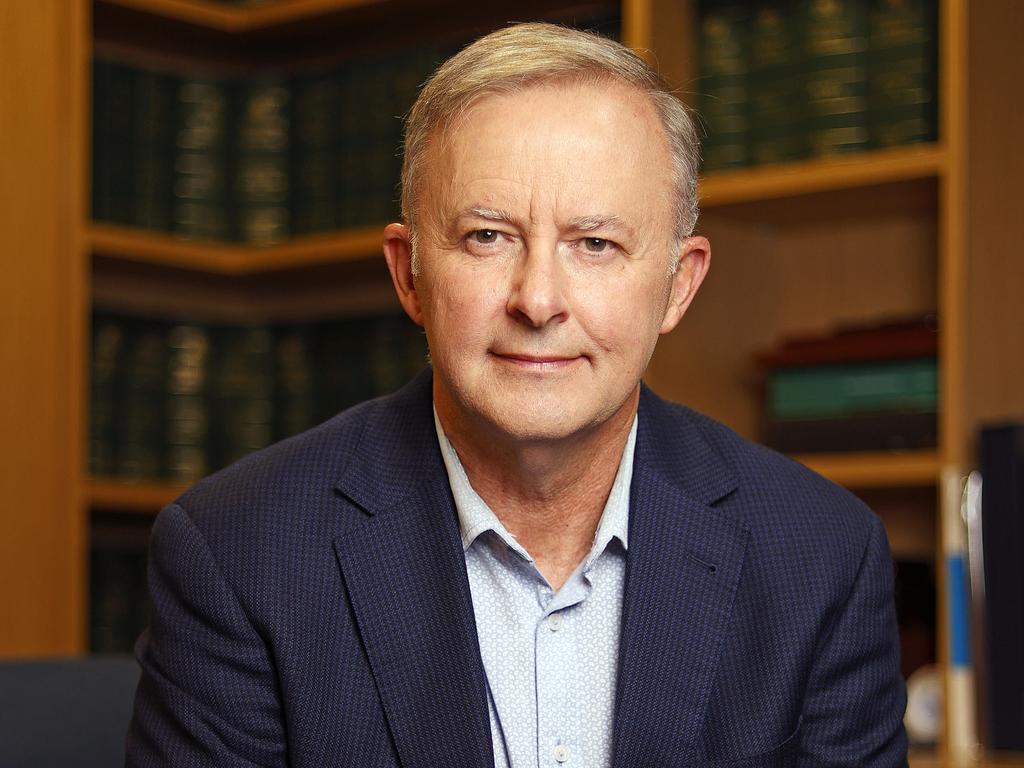
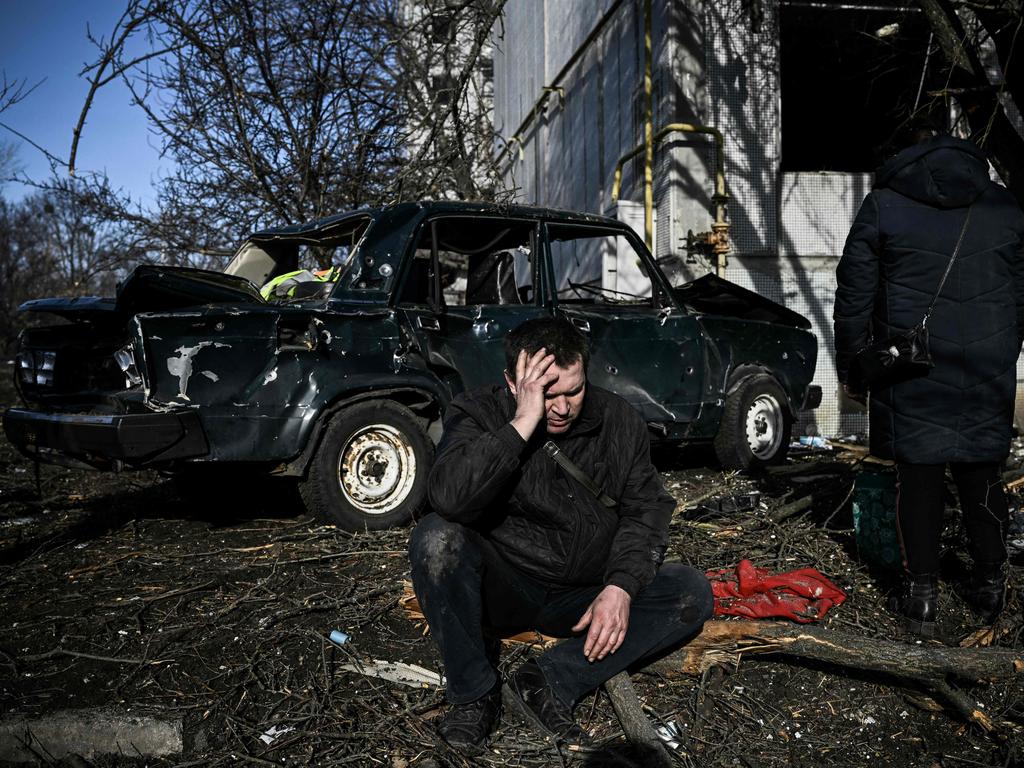


This is a war half a world away from Australia yet our stake in Russian President Vladimir Putin’s invasion is immense because it is an assault on national sovereignty and the territorial integrity of a country of 44 million people – proof that brute power and military invasion remain the ultimate resort in global politics.